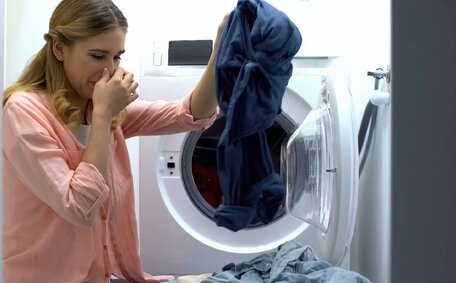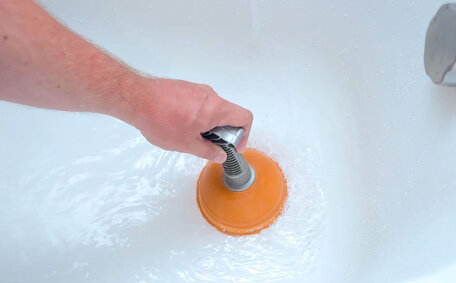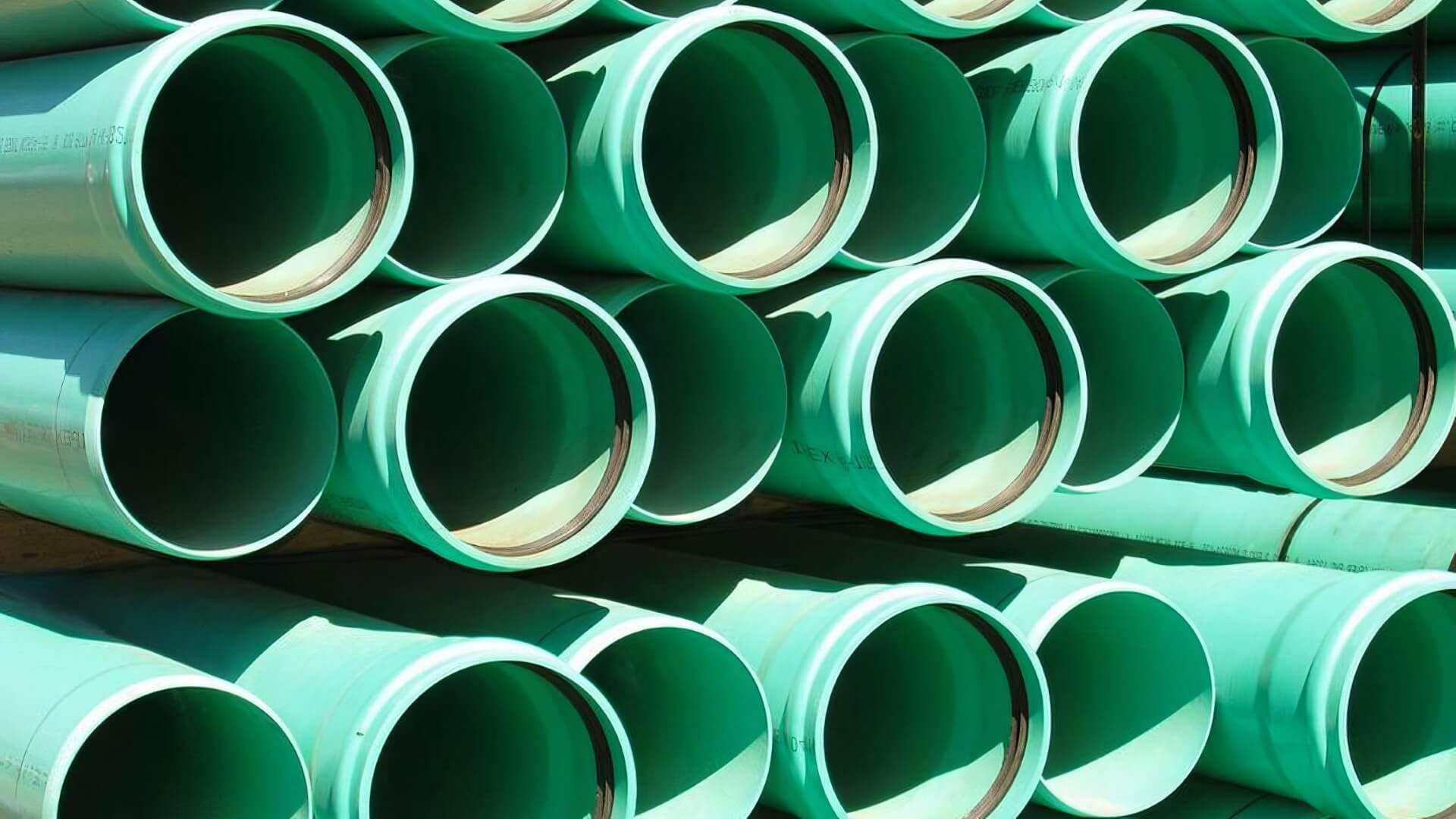Introduction to Blocked Drains in Rental Properties
Managing a blocked drain in a rental setting poses challenges for both tenants and landlords. Determining who is responsible for fixing the issue is often unclear, leading to disagreements and delays in resolving the problem. Prompt intervention is crucial to avert water damage, health risks, and escalating costs.
The key to tackling blocked drains in rental properties is having a clear understanding of what the tenancy agreement states regarding plumbing responsibilities. Standard tenancy agreements typically assign this duty to landlords, but details may differ. It is also important to know relevant landlord-tenant laws and rental property regulations in your state or territory.
With some practical plumbing troubleshooting advice and a collaborative approach, landlords and tenants can work together to keep drains clear.
Identifying Signs of a Blocked Drain
Tenants should be alert for indicators of a blocked drain, including hot water issues in the rental property:
- Water pooling around drains or slowly draining from sinks, tubs, and showers
- Gurgling sounds coming from drains
- Unpleasant sewage odours, especially from floor drains
- Toilets backing up and overflowing
- Water and waste backing up from floor drains
Such symptoms can intensify swiftly from minor to severe blockages. Upon detecting any of these signs, tenants must promptly report them to the property manager.
Catching a blocked drain early is key to minimising damage. Property managers can immediately Investigate the tenancy agreement and contact your landlord’s team regarding maintenance responsibilities. Effective communication helps prevent tenants from attempting major plumbing repairs alone, which often worsens the situation.
While some clauses may assign liability, Drain clearing and maintenance are commonly the landlord’s responsibilities. Tenants should avoid risky DIY drain clearing methods that could compromise pipes or personal safety.
Causes of Blocked Drains
There are several common causes of blocked drains that landlords and tenants should be aware of:
- Pipe corrosion - Over time, drain pipes can corrode from the inside, leading to build-up and blockages.
- Tree roots - Roots from trees and shrubs can make their way into pipes, gradually blocking drains.
- Grease build-up - Allowing fats, oils and grease to wash down drains can lead to thick accumulations inside pipes.
- Foreign objects - Flushing inappropriate items like wipes, cotton buds and hair can get stuck and cause obstructions.
- Heavy debris - An overload of food scraps, dirt and other debris may clog pipe located within the drain lines.
- Collapsed pipes - If pipes have sunk, cracked or become misaligned, this can create blockages.
Identifying the root cause of a blockage helps determine who is responsible for resolving and paying for the issue.
If tree roots external to the property invade the drainage system, the property owner must address this. Conversely, blockages from fats, oils, or non-flushable items are typically the financial responsibility of the tenant.
Determining Responsibility According to the Tenancy Agreement
The tenancy agreement plays a pivotal role in deciding liability for a blocked drain in a rental property. While standard agreements generally make drain maintenance the landlord’s responsibility, specifics can vary.
The initial step should be to carefully review the tenancy agreement’s provisions regarding plumbing repairs and maintenance. Look for clauses that directly address blockages and outline who is responsible blocked drains clearing and repair.
Where tenancy agreements are unclear, residential tenancy laws specify responsibilities for blocked drains. Generally, landlords must maintain effective drainage systems as part of providing a habitable dwelling. Hence, tenants can expect landlords to address significant drain issues.
However, if tenant actions, such as flushing unsuitable items, have clearly caused a blockage, they may be responsible. For issues beyond the property boundary, such as tree roots affecting external pipes where the local council’s direction may be required, these are generally within the landlord’s remit.
Clear communication between landlords and tenants is vital when allocating property maintenance duties. Tenants should promptly report issues and collectively discuss solutions with landlords. In case of disputes, fair trading and tenancy authorities can offer resolution advice considering all relevant factors.
Issues outside signs of a blockage. Provide details of the issues being experienced.
Consult the tenancy agreement to check responsibilities for plumbing repairs and drain clearing. Also review any state or territory tenancy laws that apply.Consider contacting your local tenancy advice service if disputes over responsibility cannot be resolved.Refrain from using any drain cleaning chemicals or attempting to clear the blockage without proper equipment.Tenants have a duty to avoid negligently causing any plumbing blockages. They may be held liable pay for damages if their actions deliberately obstruct drainage pipes. However, to make sure issues are resolved promptly, acknowledging your responsibility, general awareness, and quick reporting are essential.
Tenant Responsibilities and Steps
If a blocked drain occurs, there are some important steps tenants should take:
Notify the landlord or property manager immediately upon noticing any signs of a blockage.Discuss next steps with the landlord if it is unclear who responsible for the next course of action. Strive to go above and beyond, demonstrating that we went above beyond in finding a mutual agreement about addressing the problem.Landlord Responsibilities and Steps
As the property owner, the landlord bears the primary responsibility for maintaining rental plumbing in good working order. This generally includes addressing any plumbing issue, including blocked drains.
When a tenant reports a blocked drain, the landlord should:
- Promptly arrange for a licensed plumber to thoroughly inspect the drainage system.
- Assess where blockage has occurred whether it is due to fault, damage or improper installation in interior or exterior drainage pipes.
- Pay any repair costs needed if damage is due to natural wear and tear.
- Discuss cost sharing with the tenant if the blockage was clearly caused by misuse.
- Carry out all the necessary repairs or replacement required to restore proper drainage.
- Ensure work meets relevant plumbing regulations and high quality standards.
- He made it his mission to promptly inform the tenant once the blockage is cleared and normal service resumes.
The landlord must act quickly in response to blocked drain reports to prevent any health hazards or property damage. While tenants may bear some costs if responsible, landlords remain obliged to ensure plumbing was very much regarded as top-tier throughout each tenancy.
Seeking Professional Assistance
Fixing blocked drains is a task for licenced plumbers, who have the expertise and specialised equipment to quickly clear blockages and determine the exact cause. They would highly recommend for their proficient pipe inspections with drain cameras, employing high-pressure jet systems to dislodge blockages, and for adeptly repairing or replacing damaged sections.
Professionals can also deal blocked issues adeptly, providing advice on prevention, solutions for stubborn recurring clogs, and remedies for more complex issues like a burst pipe or tree root invasion. They know which methods work best for different types of obstructions.
For severe blockages resulting in sewage backflows or considerable flooding, it’s crucial for emergency plumbing services to promptly came out to address the blocked drain issues. Twenty-four hour plumbing service professionals can rapidly contain hazards and implement repairs to restore proper drainage.
Eastwood Plumbing can expertly manage various blocked drain dilemmas with their skilled team and comprehensive equipment. Boasting professionalism and superior customer service, they are licensed, insured, and ready to efficiently resolve residential or commercial problems. Reach out for an expert drain evaluation or repair service, ensuring satisfaction with the outcome.
Legal Considerations and Dispute Resolution
In the event of a dispute between tenants and landlords regarding blockage liability, maintaining a record of the tenancy agreement, repair invoices and correspondence is critical. These documents serve as vital evidence.
Tenants can contact their state or territory tenancy advice service for guidance if responsibilities will examine evidence to decide if tenants or landlords are liable for plumbing repairs and associated costs.
It is always best to Prioritise resolving blocked drain issues with an experienced plumber specialising in blockages. However, having an understanding of legal avenues provides direction if agreeility for clearing a blocked drain, there are legal pathways to resolve these disputes.
Start by evaluating all communications about the issue and collecting crucial documents like the tenancy agreement and repair invoices, essential for mediation or tribunal proceedings.
If informal mediation fails, the matter may need to go before a tribunal. All states and territories have tenancy tribunals that hear disputes and make binding rulings. They will examine evidence to decide if tenants or landlords are liable for plumbing repairs and associated costs.
Preventing Future Blocked Drains
Preventing blocked drains in rental properties requires vigilance and care from both landlords and tenants. Here are some tips to help avoid future clogs and keep drains clear:
- Install drain screens over sinks and tub drains to catch hair and debris before it enters pipes.
- Avoid letting your hard-earned money go down drain by pouring fats, oils and grease into it - collect in containers to dispose of instead.
- Only flush toilet paper and human waste down toilet with no fuss—never flush hygiene products, wipes or other objects.
- Employ drain strainers in your kitchen sink to catch food scraps and protect against blockages when washing dishes.
- Pour 1 cup baking soda and 1 cup vinegar down drains monthly to break up grease and keep pipes clear.
- Use enzyme drain cleaners monthly to break down organic matter and prevent buildup.
- Annual plumbing inspections and drain camera usage to spot root intrusions or pipe damage are advisable for landlords.
- Landlords, especially in Sydney, can consider tree root barriers to protect exterior drainage pipes against incursions, adhering to Sydney water regulations.
Conclusion
Blocked drains frequently cause vexation for landlords and tenants alike. To avoid disputes, tenants must remain vigilant for blockage signs and promptly notify landlords. Similarly, landlords should arrange for licensed plumbers to evaluate and rectify the issue promptly. Financial accountability for costs generally lies with the party at fault, encouraging accountability and routine maintenance. Cooperative actions are essential to maintaining clear, functional rental plumbing.






